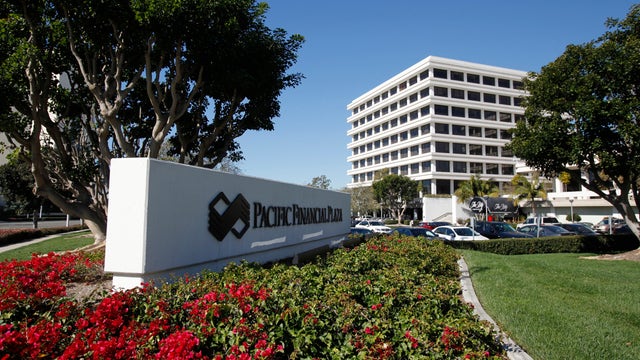Pimco Scaling Back Total Return Fund Risk: Exclusive
Financial advisers have noticed something different about the giant mutual fund formerly run by Bill Gross following his abrupt exit as the fund’s manager five weeks ago: More disclosures about certain risky investments, and a decline in the amount of leverage used to crank out results, the Fox Business Network has learned.
The changes in the way the Total Return Fund is being managed at Pacific Investment Management Co., are significant, financial advisers say, and they coincide with a ramping up of scrutiny by the Securities and Exchange Commission into whether the company properly priced securities in its portfolio, particularly in an exchange traded fund that mimics the larger mutual fund. In recent days, the Newport Beach, Calif.-based PIMCO has announced yet another management change in the wake of Gross’s departure by rehiring Marc Seidner, who left the fund company earlier in the year.
Gross, Pimco’s founder and chief investment officer, is now a portfolio manager at Janus Capital. He resigned last month following a clash with other company officials particularly over how best to manage the Total Return Fund, which has more than $170 billion in assets under management.
The Total Return Fund has been among the best performing funds that focused on bond market investments since its inception in 1987. But in recent years the fund has been suffering from poor performance and investor withdraws, adding to the tension between Gross and his senior management team. The Pimco Total Return saw an estimated net outflow of $32.3 billion last month, or 16% of assets as of the end of September, according to Morningstar.
Year-to-date, the fund has returned approximately 4% while the Barclay’s U.S. Aggregate Index, the fund’s benchmark, has gone up 5%, data from Morningstar shows.
But according to financial advisers who have been reviewing fund documents, there is also evidence that Gross had clashed with his colleagues over how much risk the Total Return Fund should employ to achieve its performance. These changes, financial advisers say, can be found in updates in the Total Return Fund investment disclosures after Gross’s October exit.
In these updates, Pimco has scaled back dramatically on its leverage or “borrowing” to achieve financial results. This can be found in sharp reduction in the amount of derivatives – or risky securities tied to a bond or a stock-- used to crank out returns, which, according to one financial adviser who has reviewed the documents, has declined by about 100%. Pimco in these documents also is now also alerting investors that it will be increasing disclosures of these risky securities to keep investors better informed about its investment decisions.
Financial advisers reviewing the documents also noticed changes in the way emerging markets debt were accounted for in these new disclosures.
Through a Janus spokesman, Gross declined comment. Mark Porterfield, a spokesman for Pimco, declined numerous email and telephone messages to comment, but he would not deny that these changes are taking place.
It’s unclear if Pimco’s new approach is a response to the increased regulatory scrutiny that began with the SEC investigating whether the total return fund’s ETC properly valued its assets. People inside PIMCO tell FOX Business the SEC has recently ramped up its scrutiny of the firm, with SEC officials making regular appearances at the fund’s offices.
One thing is certain, according to financial advisers who follow the company: The Total Return Fund is undergoing significant changes in the wake of Gross’s departure. In fund marketing materials, Pimco described the Total Return Fund as emphasizing “higher-quality, intermediate-term bonds and aims to avoid concentration risk by being more globally diversified than many core bond funds. It also has considerable flexibility to respond to changing economic conditions, helping to manage risk and increase total return potential.”
But financial advisers say a simple review of the fund’s assets shows that managers, particularly under Gross, employed heavy amounts of leverage and ventured into risky investments in the emerging markets.




















